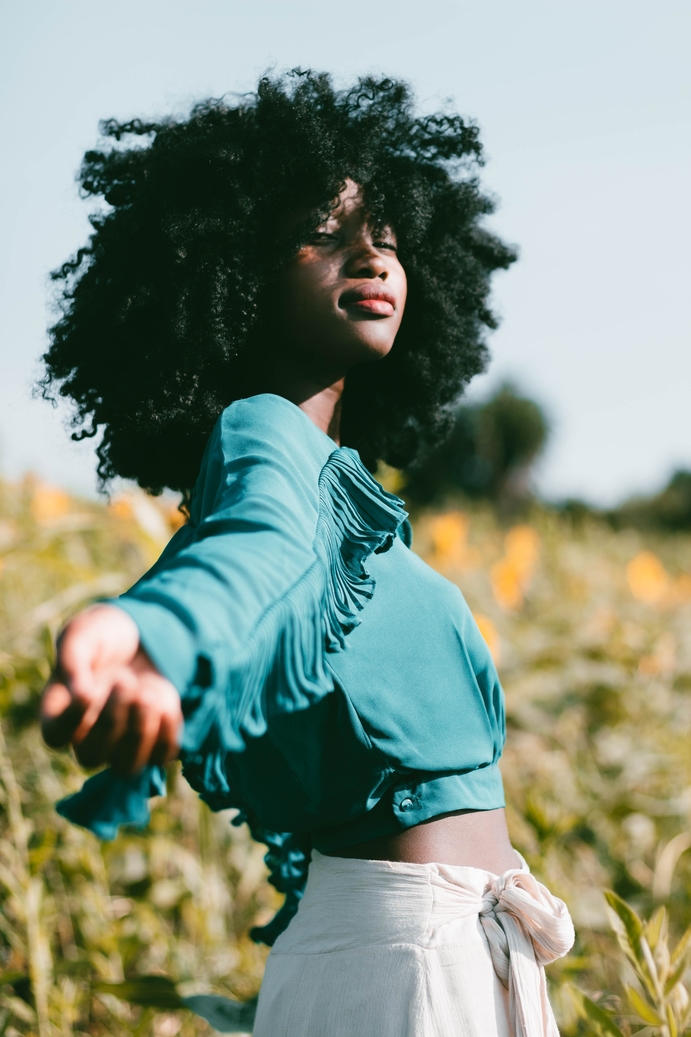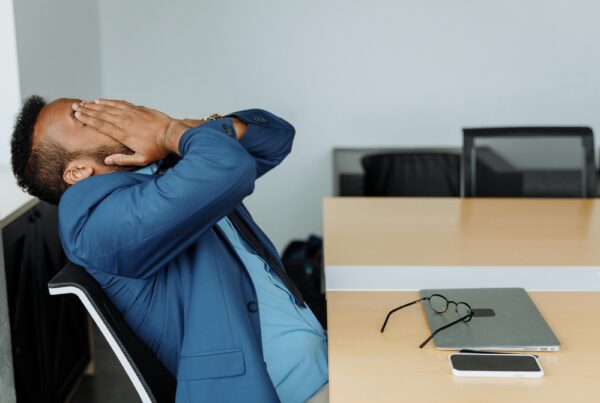
We hear a lot about the feminist movements in the media.
We encourage women to stand up and make their voices heard. We tell them they can have it all – and many of us (myself included) want it all.
I know sometimes this can leave women feeling more isolated.
Last month, I spoke on a motherhood panel at Microsoft, and one of the moms expressed that she didn’t feel as connected to the feminist movement after she had her kids.
She felt that society was telling her she needed to be everything when she wanted space, time and support to lean into motherhood.
With the #hustlehard culture, there’s a lot of pressure on women to be CEOs, mothers, wives, and everything to everyone.
What if this isn’t your path? And what if it is your path to build a massive empire and have a lot of children? Or, what if it’s something else altogether?
It’s hard to identify your path and then find the strength to follow it when we’re so disconnected from our own inner voices.
The #MeToo movement brought to light that no woman is safe. We see that almost every woman has experienced some form of sexual assault resulting in deep trauma. We know things need to change and that women need to heal.
So what does it look like for a woman to be fully healed from the trauma caused by the patriarchy? And to take it one step further, what does it look like to be a fully realized woman?
We can’t talk about healing women and we can’t encourage women to “do it all” without talking about our sexuality – how we’ve been raised to view sex and our relationship with it.
This week, I interviewed Dr. Linda Savage author of Reclaiming Goddess Sexuality: The Power of the Feminine Way.
This book has changed my life, and if we’re friends you’ve probably already heard me reference it 3-4x. It’s THAT good and THAT important.
In this interview, we cover:
- The three phases of the female experience: the maiden, the mother and the crone. How is each represented in society today? And what does it look like to realize our potential through each phase?
- The role of women in ancient times and what a more balanced society looks like.
- How women can work on healing their sexual trauma.
- How women can better leverage their intuition to find growth and fulfillment.
This is not a conversation to be missed. Watch here, and after you’re done, we’d love to hear from you. What questions do you have regarding female energy and sexuality? What resonates most with you in this conversation? And what else can we cover in the future to take this conversation even deeper?



I just caught this pod cast to prepare for the one on November 9th. I have two questions:1 I am a Christian and want to know how to reconcile the goddess view with Christianity. 2. Why does Linda believe staying a virgin is ridiculous? Is there a way to become aware of your sexual based life force and still honor your religion of choice? I’m really struggling with three things in regards to my sexuality, one being a Christian, two having sexual trauma and three, trying to “find” myself sexually if that makes sense(my lifeforce balance) and being respectful to my religion while and trying to heal. I’m not talking about having sex I’m talking about the best way to become in touch with my body and my Sexual Energy as a life force while still respecting my Christian religion. Thanks!!
Hi Marquita – Thank you so much for asking this question. Here’s what Dr. Savage says:
From my view, the Divine Feminine is part of any spiritual tradition, it is simply adding the Feminine as well as the Masculine to our understanding of the Divine. For me, the source is Love. Sexuality was never intended to be controlled and limited so severely that women would be punished and sometimes put to death for expressing this sacred life force energy. The word Virgin originally meant “a women without ties” meaning ‘unmarried’. Until children were traced through the father, which was also around the time when women and children became possessions of men (literally, legally having no rights), there was no concept of “bastard” and all children were welcomed and loved. Tribes were matrilineal, meaning ties were traced through the mother’s line and often (even today in some indigenous tribes) the mother’s brothers were the stable males in the children’s lives, which worked well as they would always be there for them, no desertions necessary if the marriage dissolved. For at least 30,000 years that we know of, women had some choice of mates and ending the pair bond was a private matter, no one was forced into a marriage they did not want, or forced to stay.
So in this context, no particular value was placed on having a hymen. Today, women in some cultures are still murdered by kin in the “Honor Killings” if they are tested and the hymen was not in tact. Virginity meaning an in-tact hymen became crucial only when males wanted to pass on property to male heirs and there was no reliable proof that the child was theirs unless women were married off at the time of their first menses, often to men at least twice or three times their age and then essentially guarded (they had no freedom of movement in Greek and Roman societies for example, and later in Europe) for their entire child bearing years and most often replaced once they were no longer pleasing to their husbands, who had ample freedom to be sexual with anyone they chose all during their lives; many of the slaves and later house maids were unwilling victims of rape by powerful men who considered themselves Christians. The victims were held solely accountable and dismissed if they became pregnant. The trauma you experienced at three is something you will need to work out with a competent therapist and I hope you have because it does impact your ability to respond and feel safe. It is also a global tragedy because of the broken masculine around sexuality specifically.
Choosing to connect to your sacred life force and express your sexuality within a safe and loving relationship (which is not always true in some marriages) is not against any religion, but the interpretations of what is the right conditions for women to be sexual varies widely. If you are in a loving relationship and your mate is open to listening to your needs and also open to learning about sacred sexuality (marriage doesn’t literately guarantee this) then there is much you can do to honor your beliefs and also your sense of self as divine; worthy of being adored physically, emotionally and spiritually. Please consider reading my book, it is meant to empower you.